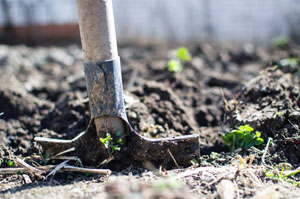For more than 15 years, the World Forgotten Children Foundation (WFCF) has been supporting the welfare of orphaned children with disabilities in developing countries.
Recently, WFCF expanded its mission as an effort to not only support these children in need, but also the underprivileged communities that they live in. The mission now encompasses both the health and welfare needs of orphaned children with disabilities AND the health and welfare needs of underprivileged communities.
In addition to projects that directly benefit orphaned children living with disabilities in developing countries, WFCF now also welcomes proposals and prospective partnerships for projects that can benefit underprivileged communities and stop the cycle of poverty. The programs will be environmentally friendly, with sustainable and self-maintained agricultural systems modeled from natural ecosystems.
An example of such programs, WFCF, in partnership with the African Community Project (AFC), has commenced a unique water management program that will enable underprivileged communities in rural areas of Africa, such as the Zimba District of Southern Province, Zambia, to properly utilize water for developing a more sustainable community.
WFCF’s goal is to reach out to as many rural communities as possible anywhere around the world regardless of ethnicity, background, belief, and culture who are currently fighting against poverty.

WFCF is inviting NGOs and not-for-profit organizations that support the aforementioned communities to submit their projects for funding consideration to WFCF:
help@world-forgotten-children.org
Projects should focus on:
- Care for the Earth: Include provision for all life systems so they can continue and multiply, because without a healthy earth, humans cannot continue.
- Care of the People: To access those resources necessary for their existence.
- Return of Surplus: Reinvesting surpluses back into the needy community.
- Returning waste back into the system by recycling and composting.
Project proposals should include the following:
- Detailed background information
- Detailed project description
- Level of community involved in the project
- Economic benefits and poverty reduction impacts
- List of equipment and their utilization plans
- Detailed costs, budget, and timeline
- A list of five (5) references with their contact information


